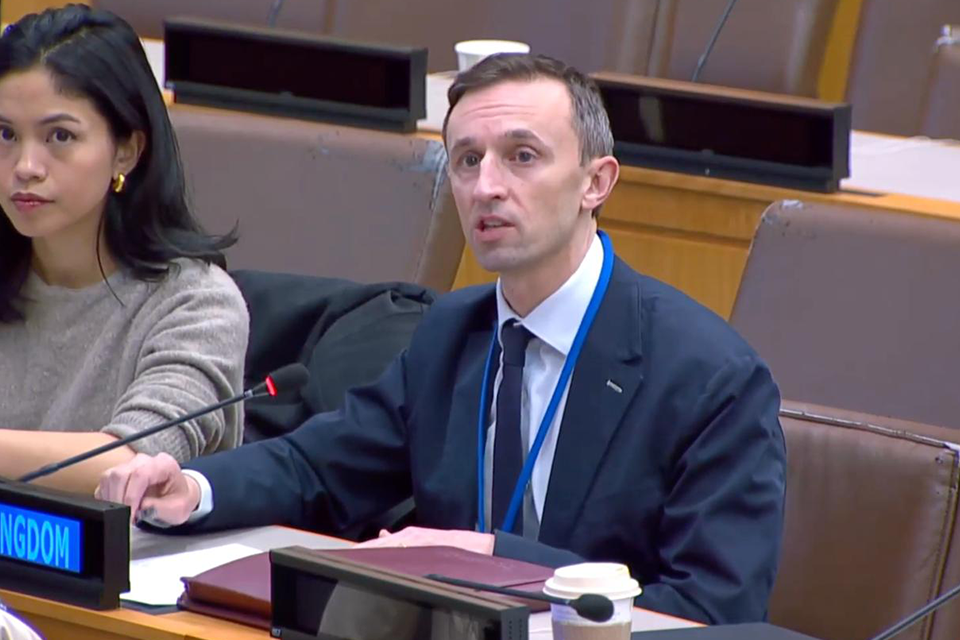The UK is committed to defending fundamental freedoms and civic space including within the UN: UK statement at the UN NGO Committee
Statement by Archie Young, UK Ambassador to the General Assembly, at the opening session of the UN Committee on Non-Governmental Organisations (NGOs).

Thank you very much Chair, may I start by expressing our gratitude to the outgoing Chair from Eritrea and can I also thank the Secretariat and the NGO Branch for preparing this session.
The UK is committed to defending fundamental freedoms and civic space, including within the UN system. Civil society organisations are often at the frontline facing significant danger, supporting progress towards the Sustainable Development goals for a more equitable future for all.
Here at the UN, contributions from civil society help improve our decision-making and enrich our evidence base, making UN action more effective and more substantial. Critically, helping it have the impact that we need to see for the people who need it most.
Yet we recognise that the vital work of CSOs is not recognised by all member states. Although this Committee’s principal role is to facilitate NGO access, we continue to see deliberate delays and obstructions to its work from a small number of Member States.
We see continued misuse of the ‘no objection basis’ and politicised deferrals, over many years in some cases, which undermines trust and confidence of our processes.
In particular, NGOs working on important human rights issues or representing marginalised groups are the targets of these deferrals facing hostility, intimidation and reprisals. As the UN approaches its 80th anniversary and we face multiple challenges, civil society inclusion and contribution to the work of the UN is more vital than ever.
As in previous sessions, we will seek approval of all applications from all legitimate NGOs. Our scrutiny of NGOs will be only on the following categories in line with resolution 1996/31.
Number one, the NGO must exist and be currently active.
Two, the NGO is independent of government with a majority of positions filled by individuals without government connection.
Three, the NGO does not cause harm to people, property, or the environment.
And four, the NGO and its staff are in adherence to the UN Charter, in that it does not engage in politically motivated attacks against Member States nor verifiably benefit from proceeds of criminal activity.
Now, Committee Members will know that the UK, alongside Costa Rica, has worked with others to reform the Committee’s working methods. We appreciate the engagement on these reforms. Following endorsement by ECOSOC last year, we look forward to working with all Members to implement and build on these reforms as soon as possible.
We urge all Committee Members to assess applications fairly, and promote a safe, inclusive and meaningful space for civil society participation at the UN.